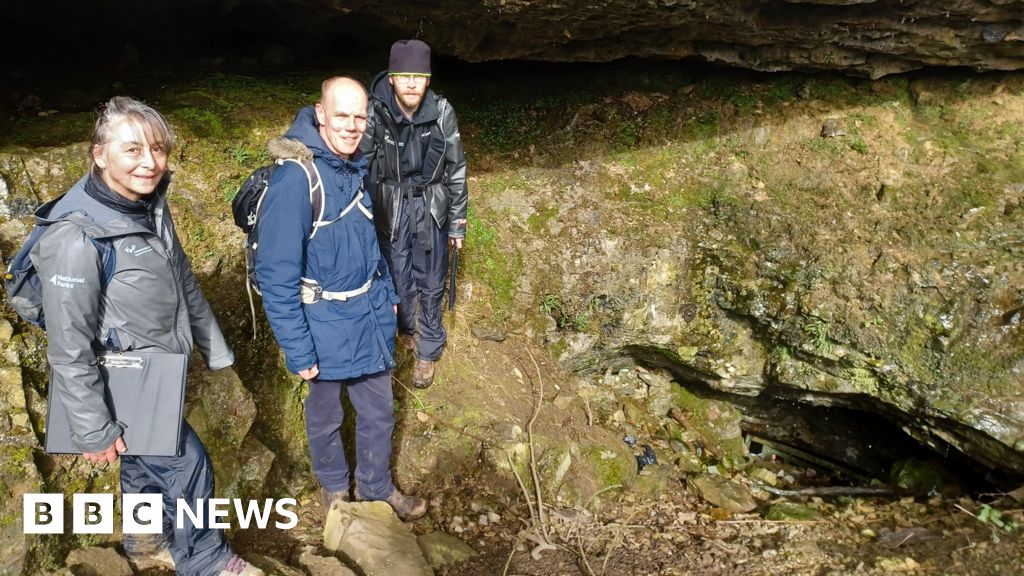
Remains of extinct Bronze Age cattle found in Ingleborough cave
AI-Generated Summary
Archaeologists and cave explorers have made significant discoveries in the Yorkshire Dales, uncovering the remains of an extinct Bronze Age auroch and evidence of a Neolithic human burial site within a cave system near Ingleborough. The auroch, a wild ancestor of modern cattle, was once widespread across Europe but became extinct in the 17th Century due to habitat loss and hunting. This discovery, made while surveying caverns and sinkholes, provides crucial insights into the prehistoric use of these underground spaces by early inhabitants who lived and farmed in the Dales. The findings are part of the broader Ingleborough Cave Archaeology Project, a component of a substantial £3 million scheme funded by the National Lottery Heritage Fund. This larger initiative is dedicated to securing the future of upland commons across several key regions in the UK, including the Yorkshire Dales, Dartmoor, the Lake District, and the Shropshire Hills.
The project explicitly highlights the invaluable role that experienced local cavers play in archaeological exploration. As Rick Peterson, a caving archaeologist at the University of Central Lancashire, noted, these cavers are often the first to encounter such finds due to their unique ability to access challenging cave environments. The partnership established through this project ensures that any discoveries made during recreational caving are officially documented, preventing the loss of vital historical information. This collaborative approach underscores the importance of integrating specialist skills from different fields to advance our understanding of the past. The archaeological work at Ingleborough is not merely about uncovering ancient artifacts; it's deeply intertwined with contemporary environmental and land management concerns.
Beyond the historical excavations, the Ingleborough Cave Archaeology Project also focuses on engaging today's farmers in sustainable and adaptive land management practices. This forward-looking aspect is particularly relevant in the context of Ingleborough, which remains one of the few places in England where "commoning" traditions persist. Approximately a dozen farmers continue to graze sheep on the land under ancient rights that date back to the Magna Carta. Claire Braeburn, a project officer, emphasized the longstanding history of Ingleborough as common land, stating that a key objective was to determine how long humans had been farming on the fell by examining cave evidence. This historical perspective provides a crucial backdrop for understanding current land use.
The project's findings have broader implications for the preservation of England's natural and cultural heritage. Historically, over half of England was common land, a figure that has now dwindled to a mere 3%. This drastic reduction underscores the urgency of understanding and preserving what remains. The research at Ingleborough has significantly enhanced knowledge about human interaction with common land and the land's longstanding biodiversity. Braeburn stressed the critical importance of preserving these ancient practices, warning that "we risk losing them forever" if action is not taken. The project thus serves as a powerful reminder of the interconnectedness of historical land use, ecological health, and contemporary sustainable practices, advocating for the protection of both tangible archaeological remains and intangible cultural traditions like commoning. The discoveries not only illuminate the past but also inform and inspire efforts to safeguard the future of these unique landscapes and their associated human activities.
Key Points
- Extinct Bronze Age auroch remains and a Neolithic human burial site were discovered in a cave near Ingleborough, Yorkshire Dales.
- The discoveries are part of the Ingleborough Cave Archaeology Project, a £3 million scheme funded by the National Lottery Heritage Fund, aimed at securing upland commons.
- The project emphasizes the important role of local cavers in accessing and uncovering archaeological finds in difficult-to-reach cave sites.
- Beyond archaeology, the initiative also focuses on engaging modern farmers in sustainable land management and preserving "commoning" traditions that date back to the Magna Carta.
Continue Reading the Full Article
You've read the first 100 words. There are 291 more words to discover in the original article.
Support quality journalism by reading the full article on the publisher's website.